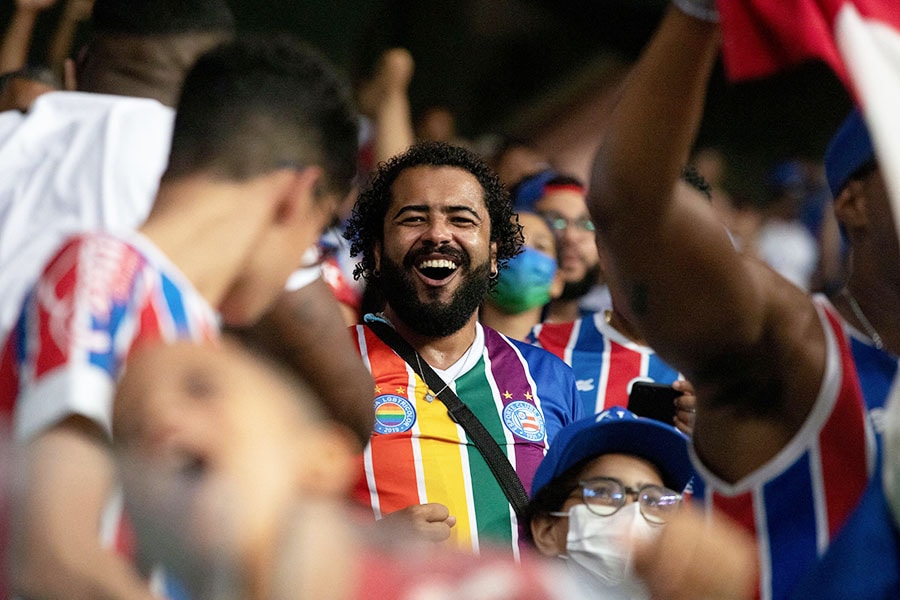
LGBT football fans fight for safe space in Brazil stadiums
Although almost all top Brazilian football clubs have at least one LGBT fan group, most of which emerged in the past decade, the vast majority keep their presence to social media. Fear of actually going to the game reigns. However, they also face threats and attacks on social media
 Ona Ruda, founder of the LGBTricolor Bahia supporters group and director of the National Union LGBT Bahia
Image: Rafaela Araujo / AFP
Ona Ruda, founder of the LGBTricolor Bahia supporters group and director of the National Union LGBT Bahia
Image: Rafaela Araujo / AFP
Wearing a rainbow T-shirt and earrings, Ona Ruda struts confidently through the Arena Fonte Nova football stadium, home to his beloved Bahia team and one of Brazil's LGBT fan bases.
However, his cool demeanour is not the norm for football fans who dare to display their homosexuality in Brazilian stadiums.
Ruda, a dark-haired, bearded man with heavy tattoos, knows he is lucky.
The club in northeastern Salvador is a rare safe space for gay fans who often steer clear of football stadiums for fear of coming under attack.
"Before, no one could come here. Today we exist, so we go, and some go with their friends, their family. The great triumph is that these people no longer need to hide that they are LGBT when they go to the stadium," the 32-year-old, who works in communications, tells AFP.







